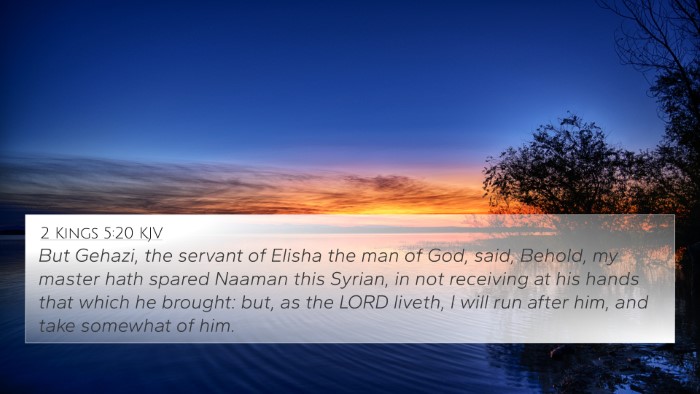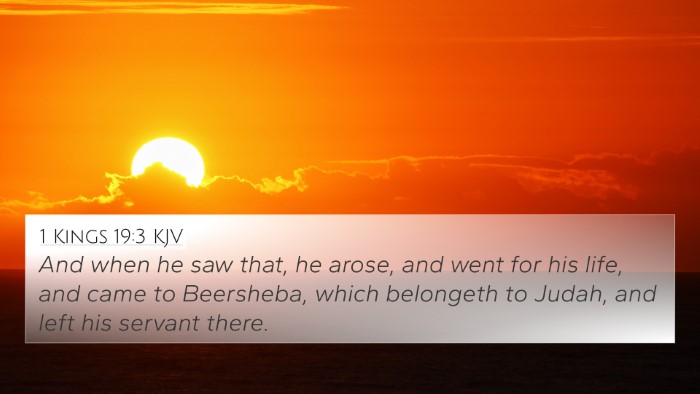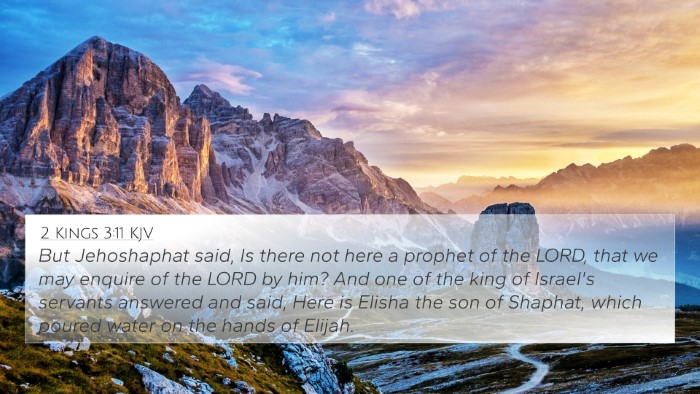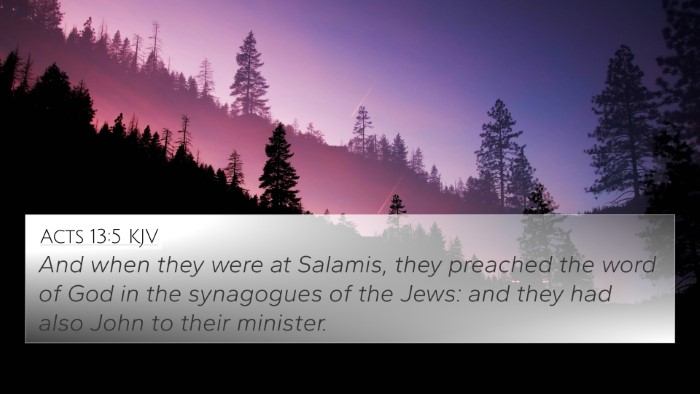Understanding 2 Kings 4:12
2 Kings 4:12 says: “And he said to his servant, ‘Call this Shunammite.’ And when he had called her, she stood before him.” This passage, while seemingly straightforward, unfolds layers of significance through its historical context and theological implications. Below is a summarized meaning of the verse derived from public domain commentaries including those by Matthew Henry, Albert Barnes, and Adam Clarke.
Contextual Overview
This verse is situated in the narrative of Elisha, a prophet who performed miracles and brought messages from God to the people of Israel. The Shunammite woman, known for her hospitality toward Elisha, becomes a central figure in this account.
Commentary Insights
-
Matthew Henry's Commentary:
Henry emphasizes the Shunammite woman's character and her willingness to serve God through her service to Elisha. He notes that her standing before the prophet demonstrates her respect and acknowledgment of his spiritual authority.
-
Albert Barnes' Notes:
Barnes points out that the act of calling the Shunammite signifies an important turning point in the narrative. This summons is not just personal; it reveals God’s intention to bless her through Elisha, aligning with the theme of divine providence throughout scripture.
-
Adam Clarke's Commentary:
Clarke discusses the broader implications of this event within the life of the Shunammite woman. He interprets her response to being called as an example of humility and obedience, highlighting the importance of recognizing God’s call in our lives.
Thematic Connections
This verse not only provides insight into the Shunammite woman but opens avenues for understanding broader biblical themes, such as:
- Hospitality and Generosity: Reflects the importance of kindness in the Christian faith, linking to verses like Hebrews 13:2.
- Divine Calling: The theme of God calling individuals, as seen in passages like Isaiah 6:8.
- God’s Provision: The unfolding blessing towards the Shunammite resonates with Philippians 4:19, which speaks of God meeting our needs.
Cross-References for 2 Kings 4:12
To deepen the understanding of this verse, it is beneficial to explore related scripture:
- Hebrews 13:2: “Do not forget to entertain strangers, for by so doing some have unwittingly entertained angels.”
- Isaiah 6:8: “Also I heard the voice of the Lord, saying: ‘Whom shall I send? And who will go for Us?’”
- Philippians 4:19: “And my God shall supply all your needs according to His riches in glory by Christ Jesus.”
- Luke 8:3: “And Joanna the wife of Chuza, Herod's steward, and Susanna, and many others who provided for Him from their substance.”
- 1 Peter 4:9: “Be hospitable to one another without grumbling.”
- Matthew 10:41: “He who receives a prophet in the name of a prophet shall receive a prophet's reward...”
- Acts 9:36: “At Joppa there was a certain disciple named Tabitha, which is translated Dorcas. This woman was full of good works and charitable deeds...”
Conclusion
In conclusion, 2 Kings 4:12 serves as a powerful testament to the intertwining themes of service, divine calling, and the blessings that arise from obedience and hospitality.
Tools for Cross-Referencing
Utilizing tools for Bible cross-referencing can enhance our understanding of scriptures. Resources such as a Bible concordance or a cross-reference Bible study guide can be instrumental in identifying these connections:
- Understanding the cross-reference Bible study methods
- Employing a Bible reference resource for thematic studies
- Exploring comprehensive Bible cross-reference materials
Finding Cross-References in the Bible
To find cross-references in the Bible, one can use the following methods:
- Consulting a Bible concordance to identify themes
- Engaging in comparative studies between related verses
- Using software or apps dedicated to Bible study that offer cross-reference options
Further Exploration
For those interested in deeper scholarly research, approaches such as a detailed cross-reference between Gospels or the examination of links between the Prophets and Apostolic teachings can significantly enrich one's theological understanding.
By examining 2 Kings 4:12 in conjunction with connected verses, we not only appreciate the narrative’s depth but also engage in a broader dialogue of themes present throughout the Bible.









